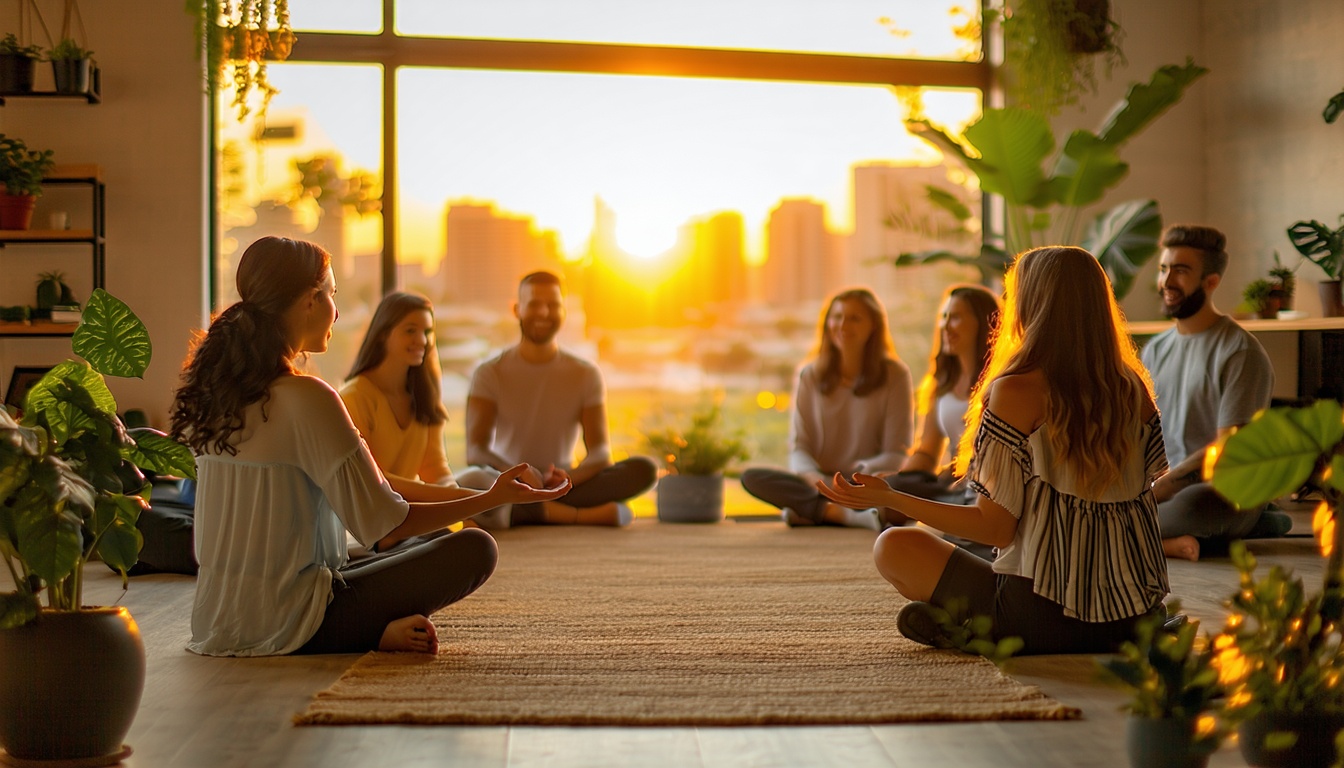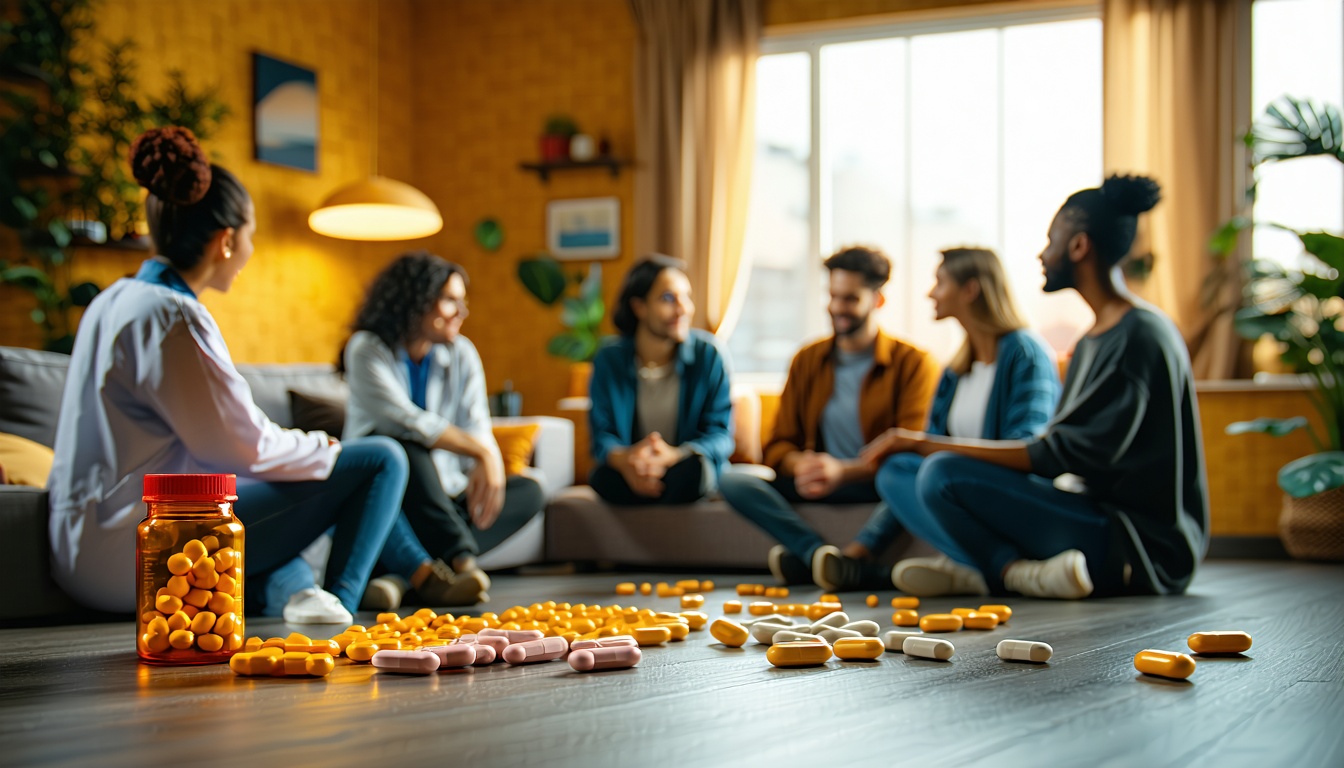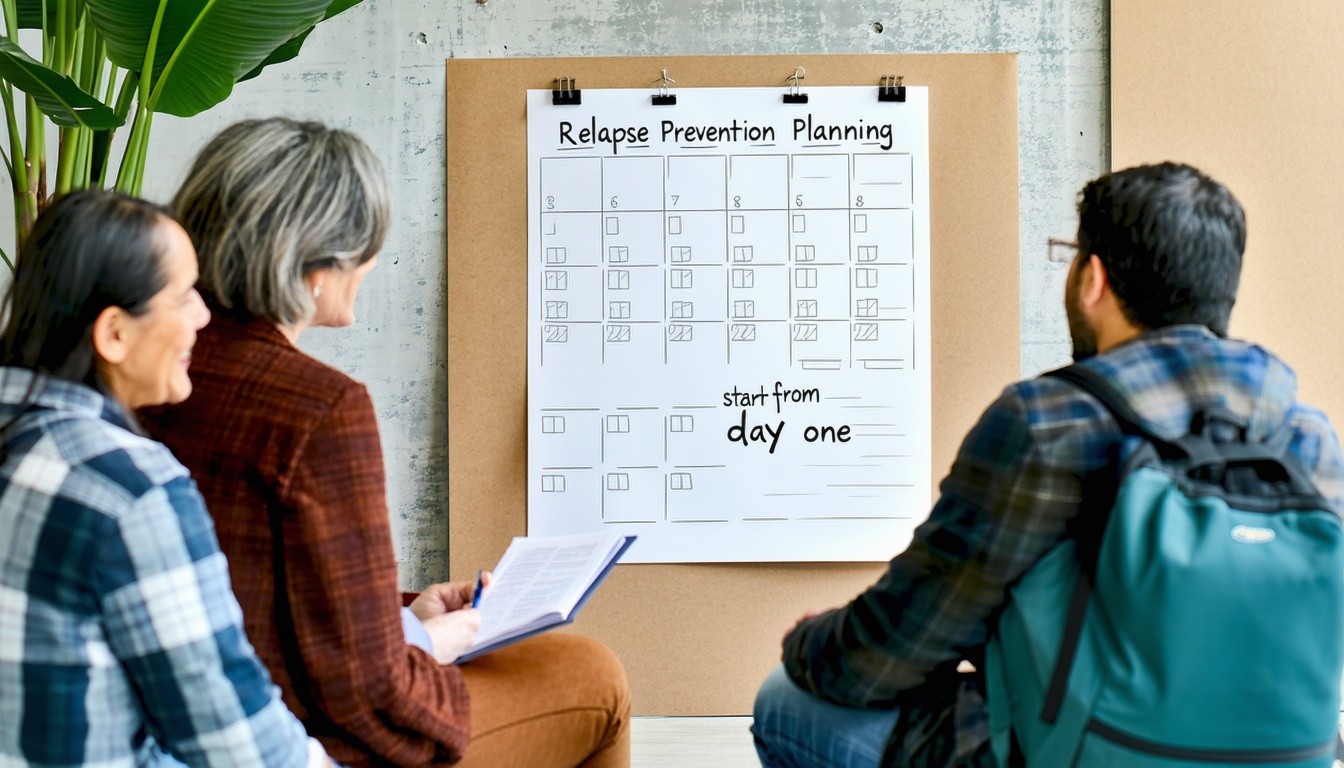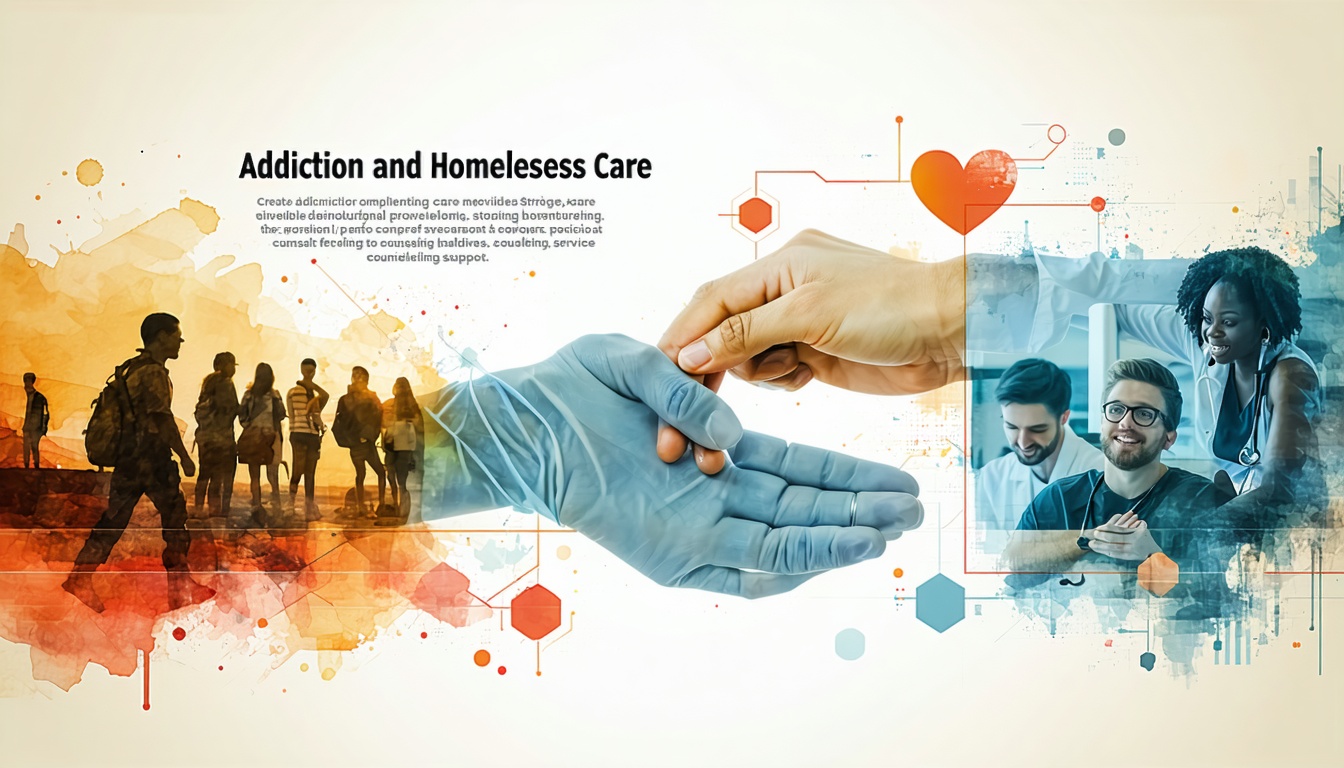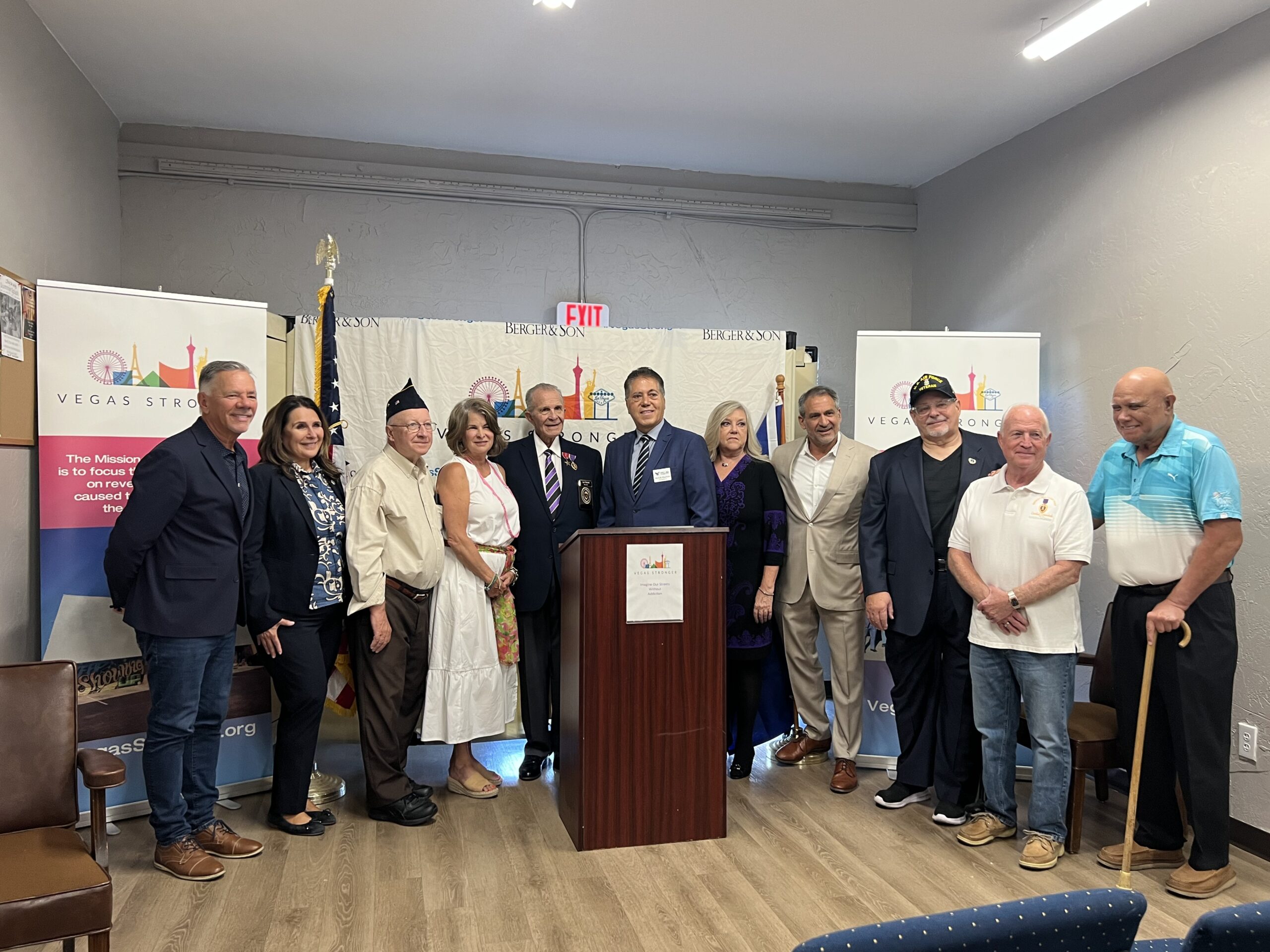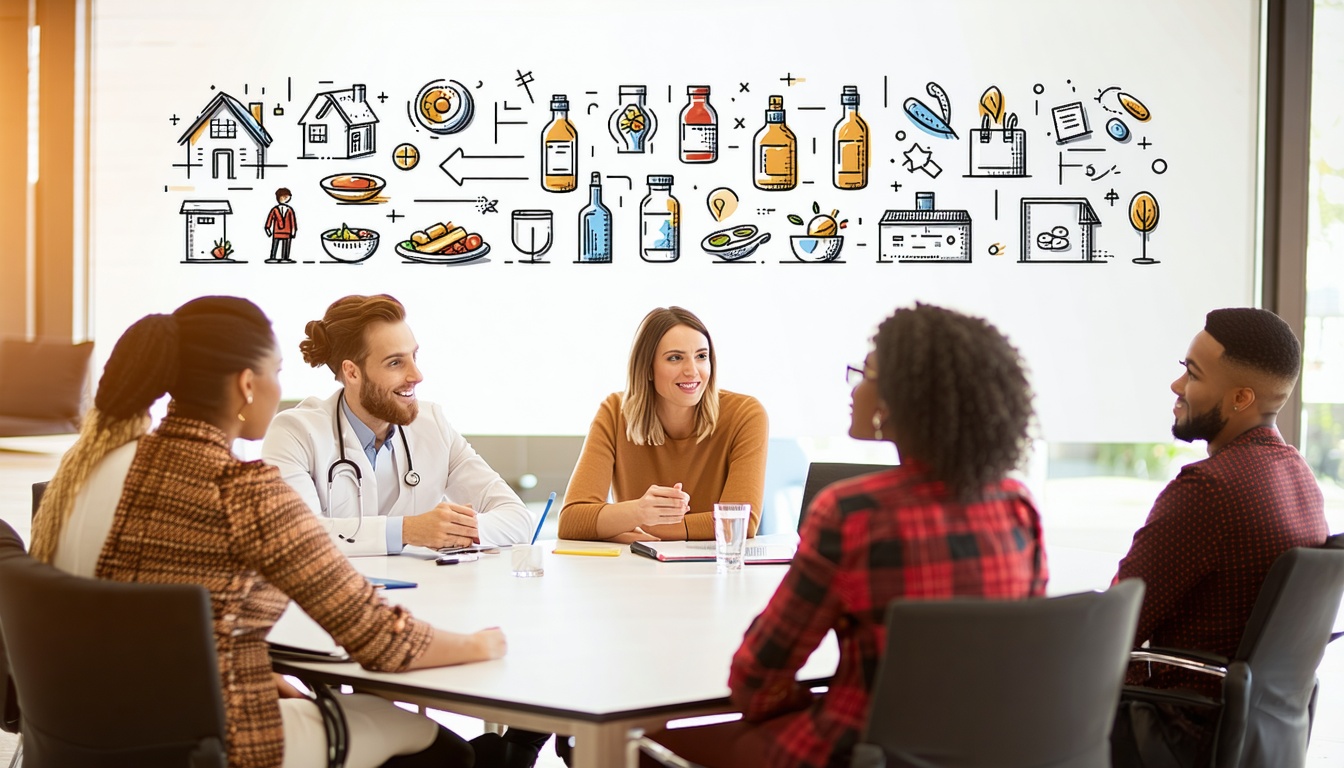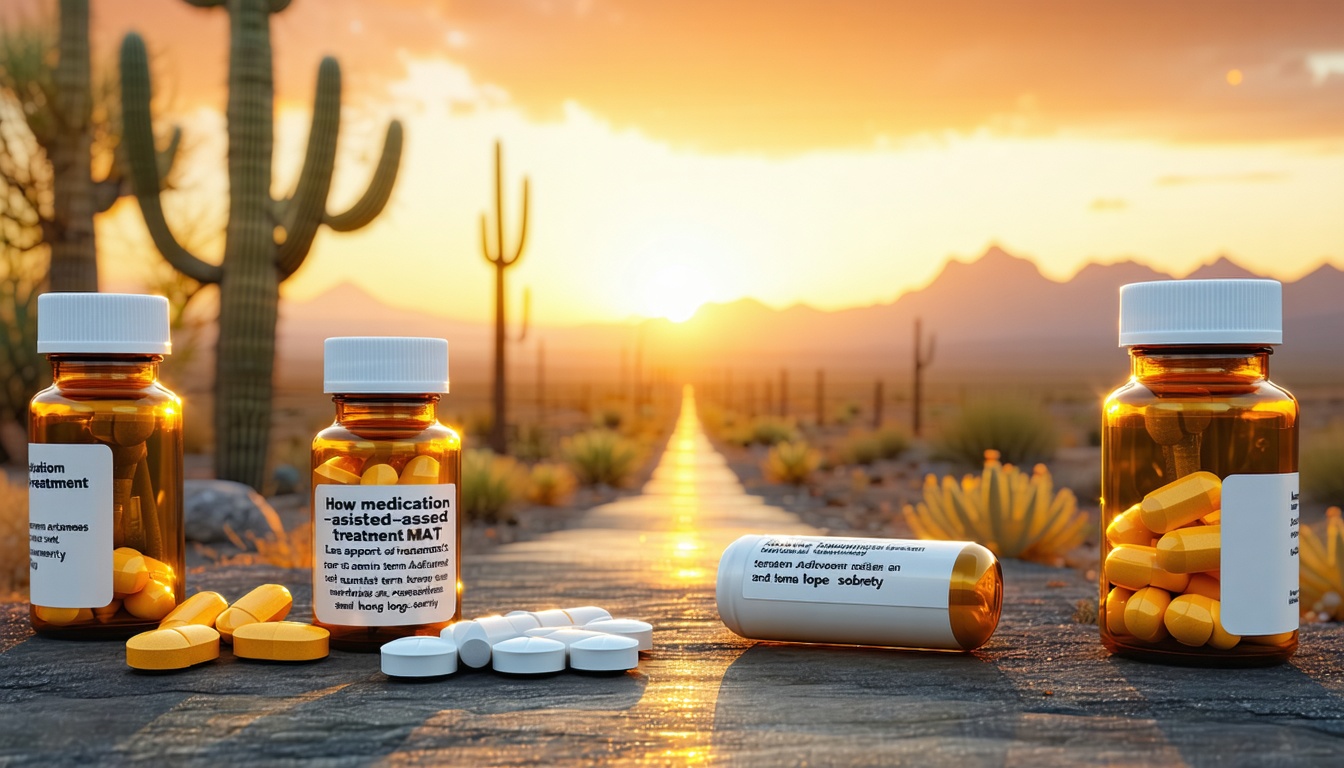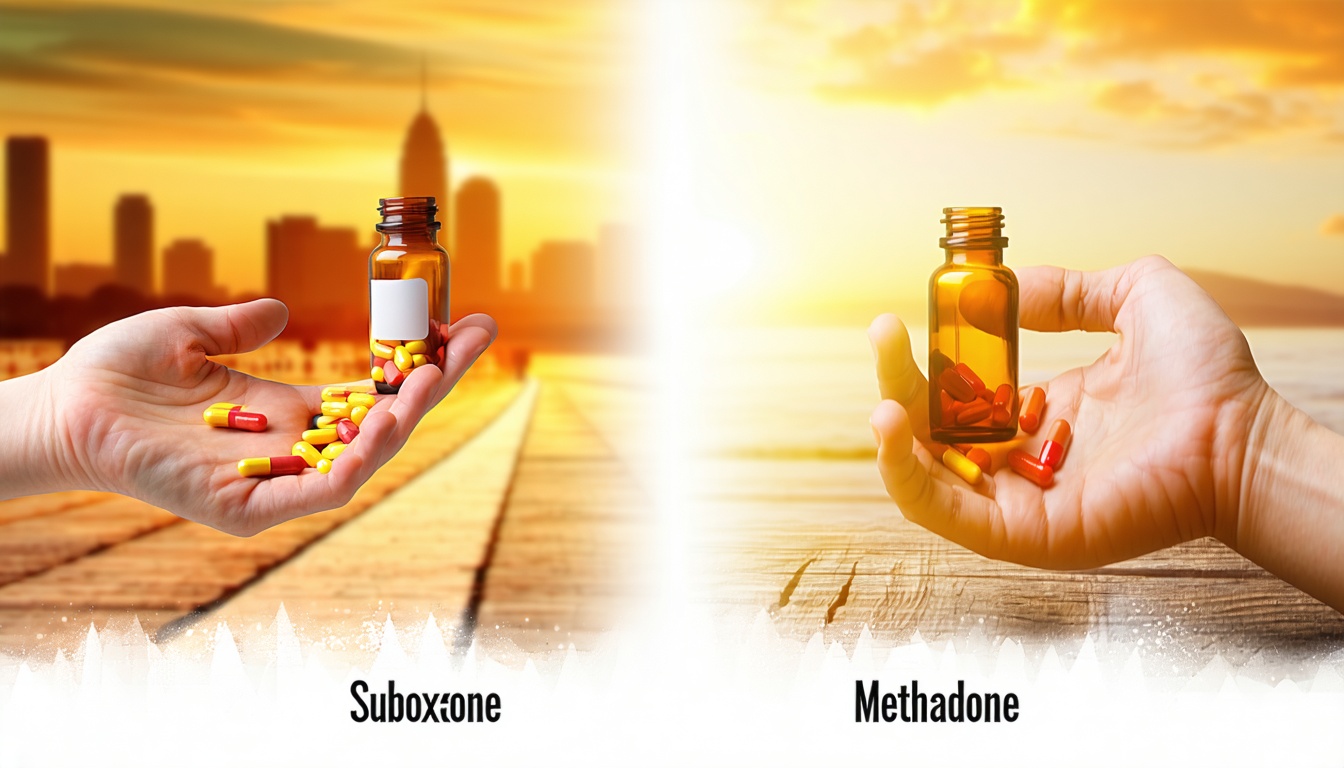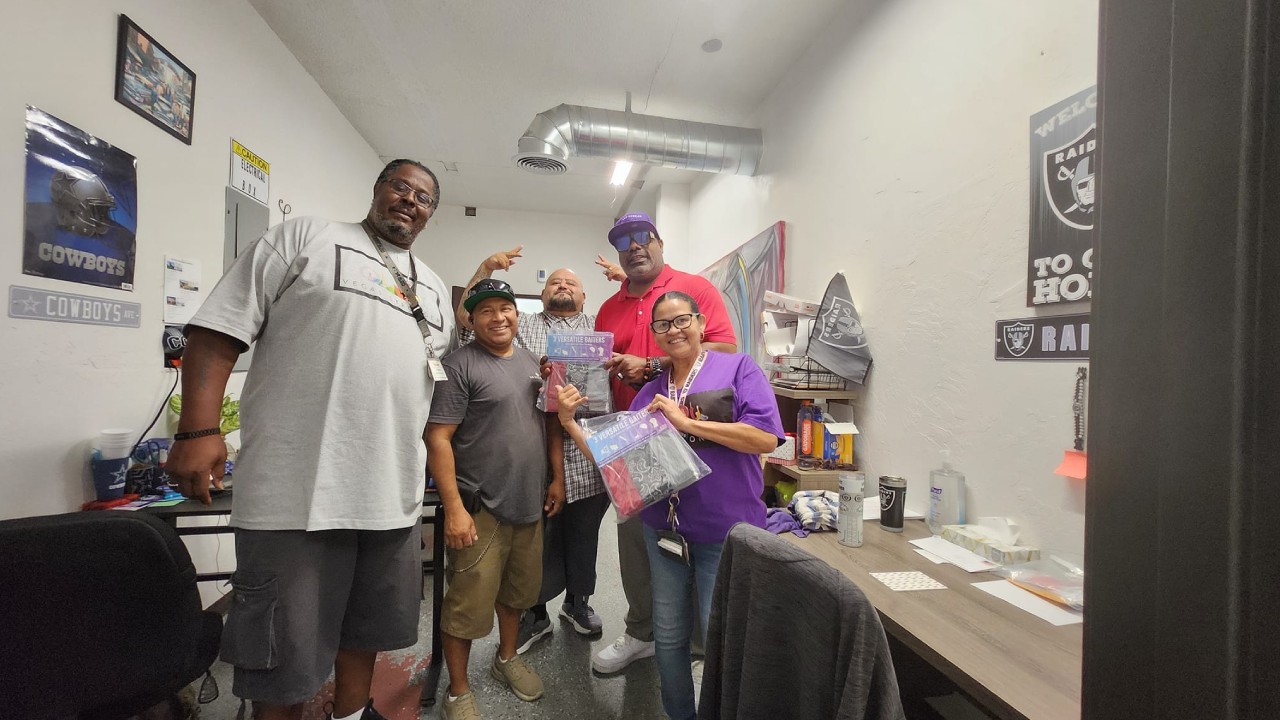Read the original interview at Authority Magazine.
Often when we refer to wellness, we assume that we are talking about physical wellbeing. But one can be physically very healthy but still be unwell, emotionally or mentally. What are the steps we can take to cultivate optimal wellness in all areas of our life; to develop Mental, Physical, Emotional, & Spiritual Wellbeing?
As a part of our series about “How We Can Do To Cultivate Our Mental, Physical, Emotional, & Spiritual Wellbeing”, I had the pleasure of interviewing Dave Marlon.
Dave Marlon is the CEO and cofounder of the nonprofit Vegas Stronger™. Dave Marlon founded and built one of the most successful addiction recovery centers in the country in the heart of Southern Nevada. The 30-year Las Vegas resident, after successfully addressing his own struggles with substance abuse, realized that he was uniquely suited to help others confronting addiction and mental health issues.
Dave is the President of the Southern Nevada Association of Addiction Professionals (SNAAP) and the 2018 National Advocacy Award from NAADAC, the Association for Addiction Professionals. Locally, he has been recognized as a graduate of the Leadership Las Vegas program, with the Mayor’s Commendation, and received the Community Counseling Center of Southern Nevada’s Vanguard Award. He has served on the Governor’s Substance Abuse Working Group. Dave’s work in the recovery sector earned him the Inspired Excellence Award from Las Vegas HEALS. He founded The CARE Coalition and The Solutions Foundation, both of which combat substance abuse in Southern Nevada and help raise awareness about addictive behavior and its consequences. Dave serves on the board of HELP of Southern Nevada, the Las Vegas Rescue Mission, the Nevada Donor Network, Serving Our Kids Foundation, and the UNLV Soccer Foundation. He has helped establish the first public recovery high school in the nation and is helping champion the fight against the opiate epidemic through his foundation, Vegas Stronger™.
Thank you so much for joining us in this interview series! Before we dive into the main focus of our interview, our readers would love to “get to know you” a bit better. Can you tell us a bit about your childhood backstory?
Mychildhood was both completely normal and absolutely abnormal. I was born in the Northshore hospital in New York; I am the oldest and only boy with two younger sisters. My mom and dad were young when they had me in the mid-60s. It was a miracle that they had me, as my mom is a Holocaust survivor and wasn’t quite sure she was ready to have kids, but my Italian (paternal) grandmother saved my life. She partly raised me and I get a lot of my toughness from my Jewish survivor mother and my Matriarch tough-bones Italian grandmother. I had good parents, and a good family, but we moved to a new school every year of my life until high school. That’s extremely hard on a kid, and I found that I used my sense of humor to my advantage. It didn’t always work because I would also get into a lot of fights, since the new kid was usually the one picked on and every year, I continued to be the new kid wherever we ended up. I’ll say it again that my parents were good people, but they used drugs throughout my childhood; it made sense to an extent because of the era and the environment, but I recognized that this was bad so I avoided drugs and alcohol until my second year of college. That’s when I fell in love with them. Overall, I had a childhood that seemed to me to be a unique experience.
What or who inspired you to pursue your career? We’d love to hear the story.
My Uncle Tony was a Stanford trained cardiologist who opened up an HMO that became very successful. In 1974 Congress passed the HMO Act requiring large self-insured plans to also offer an HMO to its employees. At the time the mob were controlling these giant funds of money and they were not happy that this new wellness-oriented health insurance started taking some of their market share. My uncle continued to offer health insurance to every casino in Las Vegas, despite the mobs’ threats. I learned from him to be tough in the face of adversity when you were doing the right thing. My Uncle Tony offered me a job at his insurance company and I pivoted from my Economics college degree and sales job in Manhattan (aimed to get me to my investment banking job that would get me a yacht) to working for him for 20 years. I earned my MBA during that time and became the CEO of several insurance subsidies. If it weren’t for my Uncle Tony not only would my career have been extremely different, but my perception of why I should be doing what I do would be different too.
None of us can achieve success without some help along the way. Was there a particular person who you feel gave you the most help or encouragement to be who you are today? Can you share a story about that?
Yes, I shared a little bit about my Uncle Tony and how I came to work for him for 20 years and how he set me on my professional path in life. He did so in a very cold, yet supportive way. He offered me a 20k salary, which was 5k a year less than I was making in New York, and he did nothing else for me except demand excellence at every level. It was cold and distant, but it was exactly what I needed. Although I started out making small sums, after 20 years of a career he taught me that there isn’t a fast way to success. It was earning my Masters and working 70–80-hour weeks, working harder than others, and that is what made me successful. I am so grateful for the opportunity he afforded me.
Can you share the funniest or most interesting mistake that occurred to you in the course of your career? What lesson or take away did you learn from that?
I was the Vice President of Underwriting and Product Development at a large insurance company, I had just finished my MBA and I was at the height of my drinking and disrespecting my body in certain ways. I had come to my boss on multiple occasions to alert him that our certificate of coverage contained errors. We were the biggest insurance company in the state. I was told to “fix it.”
Begrudgingly, I opened word press and started editing the large document. After 9 months of working with different departments, with lawyers, gathering regular input from provider relations, the claims department, pharmacy, the enrollment department, everyone. I “fixed it” and immediately learned from this process that if anyone had any questions about the company, they would come to me and I could answer it because I had just rewritten all of the policies. By doing the work, I benefitted. Not only did I benefit, but when we were done, we were able to update our product for hundreds of thousands of people and thousands of companies.
This entire experience ended up slingshot ting my career, leading to COO and CEO of the company due to my knowledge of our product and close working relationships with every department. So, the moral of the story here is to do the work. I didn’t ask for extra pay while I was taking on this new massive project. I didn’t complain about the weekends and late nights but I realized later that I was nicely rewarded for this hard effort. Incidentally, the 401k I got from this role at this company was used to open Solutions Recovery, where I saved thousands of lives and ended up selling for millions of dollars. Hard work and the American dream.
Is there a particular book that made a significant impact on you? Can you share a story or explain why it resonated with you so much?
The Big Book of AA, 4th edition, has made a profound impact on me. I was a philosophy minor in college, where I experimented with weed and mushrooms. I considered myself to be a seeker of knowledge and I was never able to find spirituality in religion. Drugs and alcohol ended up overpowering my life during my knowledge seeking years and beyond, but I am now 15 years in Recovery thanks to treatment, but also thanks to the Big Book. Even for those who do not have issues with substances or process addictions, the Big Book has practical processes that teach you how to clean house mentally and emotionally, trust others and build trust in others, and most importantly how to help others. Despite being 85 years old, this is a practical guide on how to live a mentally and emotionally healthy and happy life that treats others well. Who doesn’t want that?
Can you share your favorite “Life Lesson Quote”? Why does that resonate with you so much?
“Get off the couch” is my favorite “Life Lesson Quote” — I have traveled to over 40 countries, I have climbed the highest mountains on 5 continents, and I have accomplished a lot as a professional, as a husband, as a father, and as a man. I learn and I grow as a human by getting out of my comfort zone, my couch, and breaking the status quo. While not everyone will be getting off the couch to do the things that I do, I think it’s a great motivator because it pushes people to get up and move, physically and emotionally, away from where they’re most comfortable.
What are some of the most interesting or exciting projects you are working on now? How do you think that might help people?
I am currently building a nonprofit that addresses chemical dependency and homelessness in Las Vegas, Nevada. Our most vulnerable populations are underserved and they’re being hit the hardest by our national’s #1 (although during the pandemic pushed to #2) health issue: addiction. I founded the largest and most successful private rehab in Nevada over 15 years ago and we saved thousands of lives. I sold it to a publicly traded company in 2016, and am now taking that same successful model of 13 unique services and offering it to our most underserved community. This process is extensive and we are working hard, happily, to help the homeless community in sin city, many of which live in underground rain tunnels that we venture into every few weeks to help get people to safety and comfort, away from substances.
OK, thank you for all of that. Let’s now shift to the core focus of our interview. In this interview series we’d like to discuss cultivating wellness habits in four areas of our lives, Mental wellness, Physical wellness, Emotional wellness, & Spiritual wellness. Let’s dive deeper into these together. Based on your research or experience, can you share with our readers three good habits that can lead to optimum mental wellness? Please share a story or example for each.
One of the greatest contributors to mental and emotional wellness is, you guessed it, physical training. Exercise gives you endorphins and serotonin boosts that we crave, yes, but a physically healthy body is also proven to keep your brain functioning better. There are studies that show that exercise helps with depression, anxiety, and even some symptoms of mental disorders. Beyond that, physical therapy is needed every day because the mind and the body are connected and by keeping the body strong is a vehicle for us to engage in this spiritual experience, we call life. People are healthier and happier overall when they are physically active and taking care of their bodies. At 50 years old I fought in an undercard amateur boxing match with over 1k fans. I trained for 8 weeks leading up to that moment, and it was a spiritual experience on its own. I’m not recommending everyone get out there and fight when they’re 50, but I do recommend finding something physical that you love, or like, or tolerate, and doing it every day. You will end up loving it and being happier overall.
Finding support in others is a hell of a feeling. I truly recommended participating in a support group. I have participated in 3 to 7 meetings per week for the last 15 years. During this time, I’ve lost jobs, I’ve gotten divorced, I’ve gone through horrible allegations, losses of pets, and just generally tough times that normally could have tipped anyone over the edge. The consistent thing in my life has been the camaraderie and support of my fellows. Many associate support groups with trauma, addiction, or loss. This isn’t true, there are groups for all different types of people who have all different reasons. Look into finding your group, and see how having the continued support of others who are also making their way through the messiness of life will give you a strong sense of connection.
Lifelong learning is a very good habit. While I do mean this in the greater sense of continuing your education through specific channels, I also mean that you must acknowledge and accept that we will all continue to learn as we go through life. It is okay to be a student and learn new things daily, you can’t always be an expert, and that can oftentimes be weighted to live to that standard. In addition to econ degrees, I earned two Master’s degrees. First by MBA and ten years later in psychotherapy. Ten years later than that, I’m two years into my Doctorate in psychology. My commitment to be a lifelong learner means that I will continue my education but I will also work daily to sharpen my mind and learn new things about people, places, things, and even myself.
Do you have a specific type of meditation practice or Yoga practice that you have found helpful? We’d love to hear about it.
I once hired a Guru named Betty to do 8 one-hour sessions to train me in transcendental meditation. This is the same technique that the Beatles learned from a Yogi in 1967. I have prayed every day since I got sober 15 years ago, and I’ve meditated every day since I learned how to meditate 5 years ago. The 11th step of my Recovery program is “Sought through prayer and meditation to improve our conscious contact with God as we understood him, praying only for knowledge of His will for us and the power to carry it out.” I try to use this in my daily meditation. The primary benefit has been a sense of peace and serenity. This is a super power that I previously did not know existed.
Thank you for that. Can you share three good habits that can lead to optimum physical wellness? Please share a story or example for each.
At my age what you take into your body is the primary determinant of physical health. If you put garbage in, you will get garbage out and feel like garbage. I recommend the first habit to be conscious of what you’re eating. Different bodies have different needs, but mainly we can all agree that eating clean with vegetables and fruits is important, and amounts should be paid attention to. If you take in too little to be small, you won’t get the nutrition you need. If you take in too much, you are sluggish and your body won’t benefit while it’s working hard to get rid of the excess.
I am a freak about taking my vitamins. I personally take 20 different vitamins for my body’s needs and have taken that amount since I got sober. Drugs and alcohol are extremely hard on the body…I recommend going in for bloodwork once or twice a year and having a doctor measure your micro nutrients and adjust vitamin intake to maintain optimum performance. Our bodies need a lot, especially if we haven’t treated them well. Let’s learn what our body needs and feed it.
I’ve mentioned it before but find a physical activity that you like or love and do it every day. For me, boxing is my passion and I make sure to do it at least 3 days a week. The other days I do other physical activities that I love. Many people would assume that boxing isn’t a typical way to achieve overall wellness. The purity and beauty of sparring with another human is therapeutic. The adrenaline and intense focus of the sport is something that I find very satisfying.
Do you have any particular thoughts about healthy eating? We all know that it’s important to eat more vegetables, eat less sugar, etc. But while we know it intellectually, it’s often difficult to put it into practice and make it a part of our daily habits. In your opinion what are the main blockages that prevent us from taking the information that we all know, and integrating it into our lives?
I definitely have thoughts about healthy eating. I believe that what you put into your body is the primary determinant of your health. If we put the wrong things in not only do, we feel horrible, but our bodies get sick and cancerous in the long term. Unfortunately, in this society we get bombarded with messages every day to eat fast food or greasy food. Restaurants and corporations pay billions of dollars to make sure we eat their cheeseburger instead of a kale sale that we eat at home. We’re told that it’s cheaper and that we deserve to be lazy and eat fast because we worked hard all day. This is untrue. We deserve delicious, healthy, well thought out food that will benefit our bodies, not hurt them. We deserve to sit down and enjoy our meals, instead of eating them in a car on the way to a meeting. I love coming together with my family and eating well, while enjoying each other’s company. It sounds cliché but if we slow down, I really think it can help this issue a lot.
Can you share three good habits that can lead to optimum emotional wellness? Please share a story or example for each.
I absolutely can! #1 on my list, that many people do not think impacts them negatively unless they get a DUI or into a fight, is staying abstinent from drugs and alcohol. Before, I found that after having several drinks I had an emotional hangover, and I would feel anxious and sad. Often, I would think over what I did and said the night before and would regret even the smallest things. Whether its alcohol, cocaine, weed, prescription pills, substances put us in a state that is not natural and these are toxins that affect our body and mind. If we want to be healthy and happy emotionally, it starts with cutting out those toxins.
Kindness and honesty go a very long way. Not only to strangers, but sometimes we avoid being kind and honest to the people closest to us because we get real and raw. These practices help me maintain and enrich these emotional relationships that mean so much to me. Nurturing them is key and when the world just doesn’t seem to be going right, it feels amazing to have support from your loved ones.
I have found the answer to “what is the meaning of life?” Being of service. Spending my time thinking about how I can help rather than thinking about what I can get, is very important to me. Believe me, this isn’t because I’m selfless! I get just as much from helping others as the people that are on the receiving end. It helps me maintain my self-esteem and enables me to be useful. I’m not the only one, and others who make it a priority to be of service to others, I’ve found, are some of the happiest people I know.
Do you have any particular thoughts about the power of smiling to improve emotional wellness? We’d love to hear it.
There is quite a bit of research on the health benefits and leadership qualities of people who smile and who are optimistic. I’ve heard yoga instructors mention that when you’re pushing through something really tough, if you smile your body won’t know the difference of whether it’s real or fake, but it will get the endorphins it provides. Something that I like to do is make people smile and make them laugh. While I’m working, going to the gym, climbing mountains I am enjoying these things, smiling, and having a great sense of humor. I love doing these things. I think the key here is to do the things that you love, that make you smile, and make you laugh. And if you can, try to share that joy with someone else. Even if you are having a hard time, our attitudes during this human experience are one of the few things that we can control. So, let’s control them to our benefit.
Finally, can you share three good habits that can lead to optimum spiritual wellness? Please share a story or example for each.
I definitely want to mention that to be effective at spirituality, you need to be open, honest and willing. My wife and I were driving around in Fairbanks, Alaska, in the freezing cold at around midnight. We had marked 4 places on the map of where the Northern Lights could be seen. We drove 40 minutes to one spot, where it was cold and dark, nothing to be seen. We drove 45 minutes to a different place, where it was colder and darker, and nothing to be seen. While driving to the third place my wife said to me that the Northern Lights were fake, that’s why nobody goes out there. I replied that when I want something I can pray to G-d for it, but he doesn’t give it to me. But when I work and I put in the effort, results better than I dreamed of are achieved. Then the third place was also no luck. We went to the fourth spot on the map and majestic lights all over the sky appeared. These electromagnetic charged particles from the sun hit the atmosphere with brilliant green hues and waves, all appearing before our eyes. Praying to see the lights wasn’t effective unless I was willing to do the work. Results come from action, but there’s got to be Faith.
Mediation is an important part of Recovery. For about ten years I thought I had a waiver, that I could do all of the Recovery work except meditation because I had ADHD and I’m wired tight in general. Half measures avail us nothing, so I opened myself up to meditation and found peace and serenity. Meditation allows me to rise above myself and see the forest from the trees. When I learned that there are four states of consciousness, I was shocked: awake, dreaming, deep sleep, and in a state of meditative pure consciousness. This 4th stage of being is distinct and you must be trained to achieve. I sought training and it wasn’t until I experienced it that I even truly understood it.
Companionship and connection are very important. We are not meant to be alone, and I truly believe our species was meant to couple up. Now, companionship can look different to different people, and while I am happily married to a woman who is my partner and lover, I also enjoy the love and community I get from my family and my friends. Connection is a very important part of health and happiness. I feel spiritually more connected to the universe when I am connected with my partner. I am grateful to be in a loving and trusting relationship with my wife.
Do you have any particular thoughts about how being “in nature” can help us to cultivate spiritual wellness?
I do feel a connection with nature, and think that if humans opened themselves up a bit more to those natural vibrations then we could all benefit. I’ve climbed 30 large mountains including Aconcagua, Denali, and Kilimanjaro. The further up the mountain I get, the smaller my daily problems become. What are emails, mortgage payments, and petty relationship issues when you are in nature and close to G-d? Some find peace in water, some on mountains, some in the desert. Identify the nature that you do best in and get out there!
Ok, we are nearly done. You are a person of great influence. If you could inspire a movement that would bring the most amount of good for the greatest number of people, what would that be? You never know what your idea can trigger.
Almost 10% of all Americans have a substance use disorder. Most are in precontemplation, some are in the thick of it, and few are in the action phase that addresses this deadly disease. I am grateful to have helped thousands in Las Vegas get treatment and find physical and mental stability and happiness, and I hope to help tens of thousands get their lives back, and end the pain they cause themselves and others. Vegas Stronger™ is the movement that I currently am working on, and it is the name of the nonprofit that I co-founded. We currently provide drug and alcohol treatment to the most underserved and vulnerable population in Las Vegas: the homeless. Once we find continued success in Las Vegas, we want to take it to other cities in America.
We are very blessed that some of the biggest names in Business, VC funding, Sports, and Entertainment read this column. Is there a person in the world, or in the US, whom you would love to have a private breakfast or lunch with, and why? He or she might just see this, especially if we both tag them 🙂
I would love Musk, Gates or Bezzos to take a look at Vegas Stronger™ and what we are doing to help solve one of America’s largest issues. I’d be happy to meet with any philanthropists to garner support in our mission to help our underserved.
How can our readers further follow your work online?
www.vegasstronger.org, IG: @Vegasstrongerofficial @davevegas123
Thank you for these really excellent insights, and we greatly appreciate the time you spent with this. We wish you continued success.


